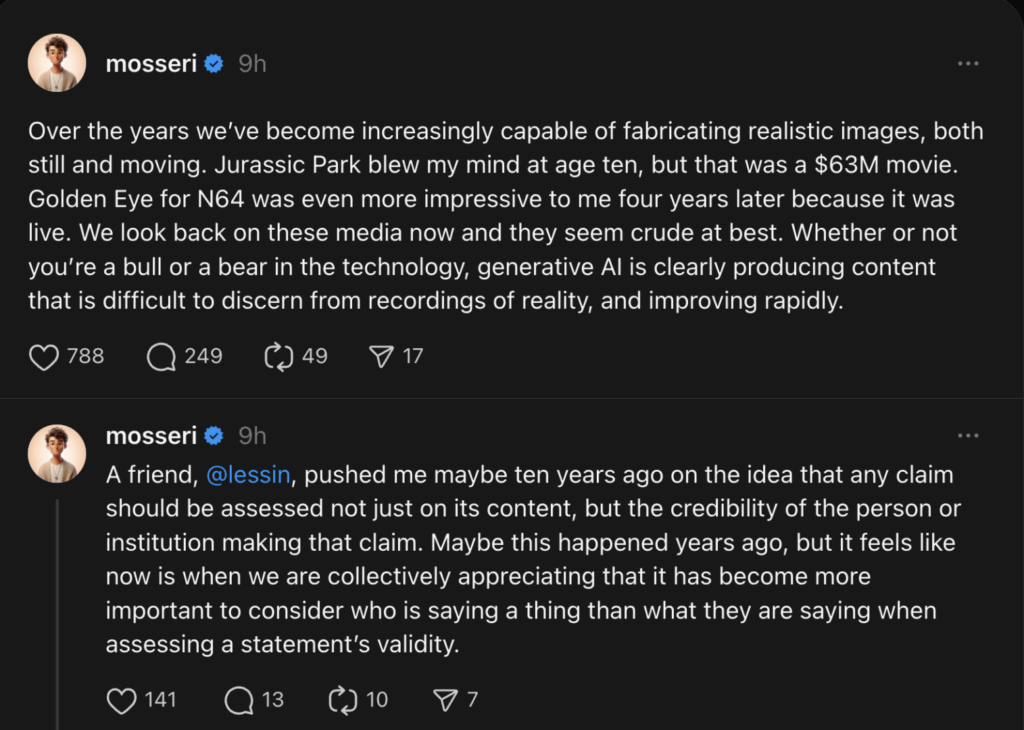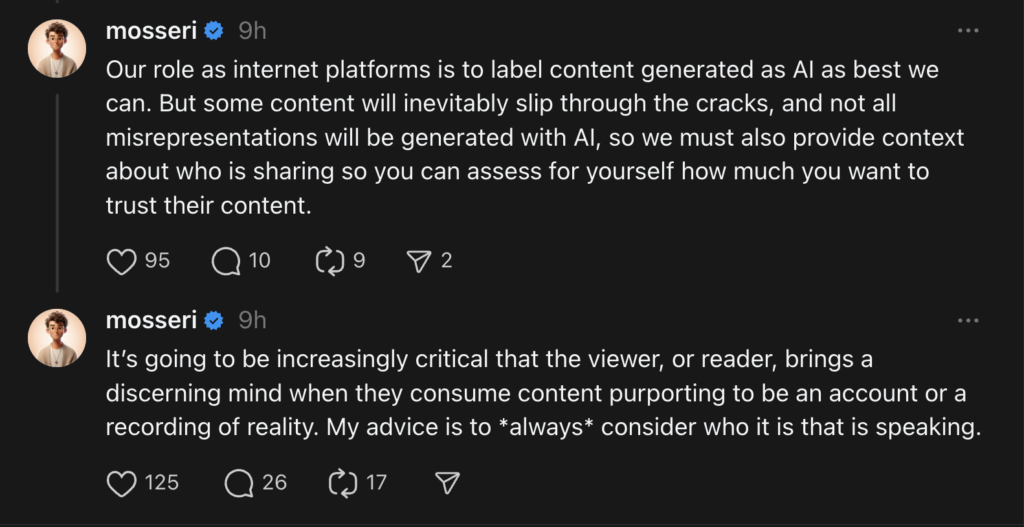Instagram head Adam Mosseri raised concerns about the growing challenge of distinguishing between real and AI-generated images on social media platforms.
What Happened: In a series of posts on Threads on Sunday, Mosseri highlighted the need for social media platforms to provide more context to help users discern the authenticity of online content.
His warning comes amid increasing sophistication in AI technology, which is making it harder for users to identify real content.
In his posts, Mosseri stated that AI is “clearly producing” content that can easily be mistaken for reality. He urged users to consider the source of images and suggested that platforms should label AI-generated content as accurately as possible.
See Also: Elon Musk Finds An Unlikely Ally In Mark Zuckerberg’s Meta In His Fight Against Sam Altman’s OpenAI

However, he acknowledged that some AI content might evade these labels. “My advice is to *always* consider who it is that is speaking.”

Subscribe to the Benzinga Tech Trends newsletter to get all the latest tech developments delivered to your inbox.
Why It Matters: Currently, Meta Platforms, Inc. META does not offer extensive context as described by Mosseri, though the company has hinted at significant changes to its content policies.
Mosseri’s vision aligns with user-led moderation systems like Community Notes on X, formerly Twitter, and custom moderation filters on platforms like YouTube or Bluesky.
The issue of AI-generated content is not new, but it is becoming more sophisticated and widespread. Previously, in Florida, an incident highlighted the potential for AI to be used in fraudulent activities, where a young investor was nearly deceived into purchasing a non-existent property.
Moreover, a study by Google DeepMind revealed that deepfakes of public figures are more common than AI-assisted cyber attacks, indicating a significant misuse of AI technology.
In response to these challenges, Meta has previously taken some steps to combat AI-generated disinformation. Earlier in May this year, the company dismantled several fake news campaigns originating from countries like China and Russia, which used AI to spread false information.
Check out more of Benzinga’s Consumer Tech coverage by following this link.
Read Next:
Disclaimer: This content was partially produced with the help of Benzinga Neuro and was reviewed and published by Benzinga editors.
Photo courtesy: Shutterstock
Edge Rankings
Price Trend
© 2025 Benzinga.com. Benzinga does not provide investment advice. All rights reserved.
Trade confidently with insights and alerts from analyst ratings, free reports and breaking news that affects the stocks you care about.